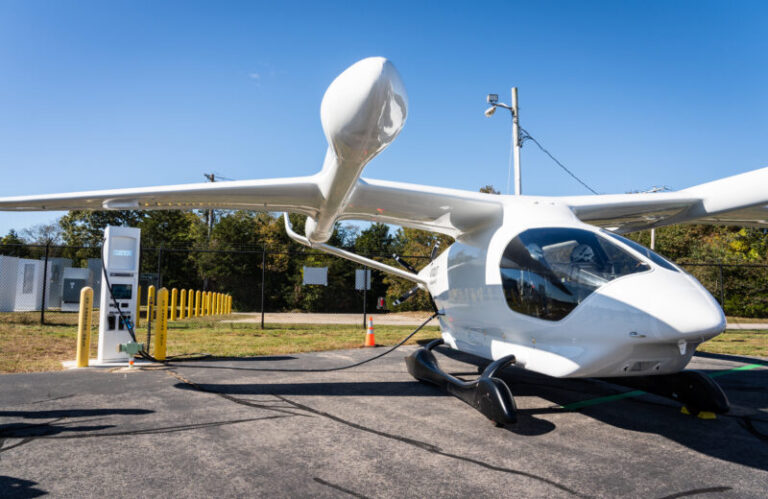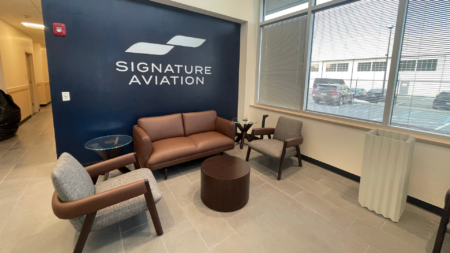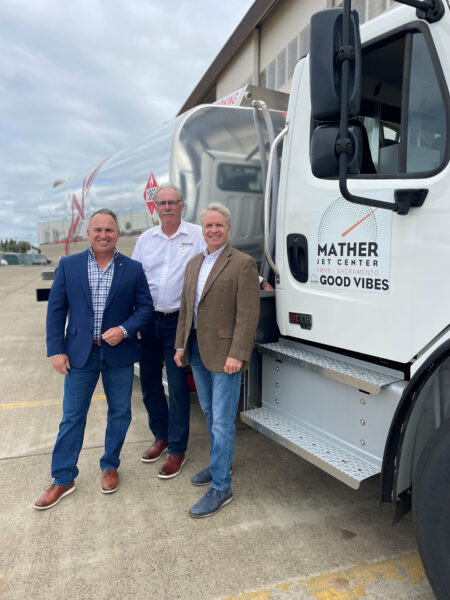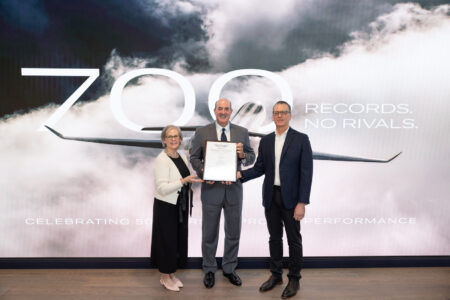Signature Aviation and BETA Technologies, an electric aerospace company, have partnered to install BETA-designed electric charging infrastructure at several on-airport locations across the east coast.
The partners have already installed and commissioned their first multimodal, interoperable charging station at Manchester-Boston Regional Airport, with two more signed agreements in place and discussions in progress for additional locations.
BETA designed its chargers to be multimodal and interoperable, utilizing an international standard to ensure compatibility with BETA’s own all-electric aircraft, other developers’ electric aircraft, and ground EVs.
These chargers offer a single solution for both ground- and air-based electric vehicles alike, providing recharge utility to existing and near-term vehicles.
This technology provides an important foundation for integrated operations, positioning Signature to support the emerging electric transportation market — from electric aircraft to ground EVs.
This modernization effort is fundamental to enabling next-generation aviation operations for Signature’s global customer base and beyond.
“We are thrilled to further solidify our partnership with BETA, which underscores our unwavering commitment to shaping the future of aviation through our sustainability initiatives in Signature Renew,” said Derek DeCross, chief commercial officer for Signature Aviation. “This announcement is indicative of a transformative time for Signature, with our recent visual identity update focused on delivering innovative hospitality across every element of the guest journey. Together with BETA, we’re not only creating greater access to electric aviation but also unlocking new possibilities in regional air mobility for our guests, all while championing sustainability and innovation in the aviation industry.”
“As one of the leading private terminal operators anywhere in the world, Signature takes a forward-leaning approach to best serve their broad base of aviators,” said Nate Ward, BETA’s head of network development. “We’re excited to partner with Signature as they prepare for what comes next, and install infrastructure to enable modernization as aviation continues to evolve. BETA has long been focused on building a reliable, accessible network of chargers for aircraft, and this collaboration represents another important pathway toward scaling our network.”
Complementing their public-access charger at Manchester-Boston Regional Airport (MHT), Signature and BETA will be installing additional chargers at Frederick Municipal Airport (FDK) and the Charlottesville–Albemarle Airport (CHO). The FDK and CHO chargers are expected to come online this summer.
The companies are exploring additional sites to expand their partnership in the future.
“Manchester is emerging as one of the top high-tech hubs in the Northeast, and we are honored that Manchester-Boston Regional Airport was chosen as Signature and BETA’s first operational electric aviation site,” said MHT airport director Ted Kitchens, A.A.E. “This interoperable charging station will help enable Manchester and southern New Hampshire to have better access to electric aviation, which will bring us better regional air mobility as we move into this exciting new era of electric transportation.”
Following Signature’s recent brand transformation announcement, this news represents another significant step in the company’s journey to connect the world through safe, seamless, and exceptional experiences.
The brand evolution underscores a commitment to innovating and enhancing connections with guests, with an eye towards the future. This announcement builds upon recent and future sustainability milestones at Signature, including the announcement of network-wide carbon neutrality beginning in 2022, the pumping of its 25th million gallon of Sustainable Aviation Fuel (SAF) in 2023, and the forthcoming arrival of the industry’s first electric refueler at its Vail location.
These Signature sites join BETA’s growing network of chargers across the USA. To date, the company has brought its multimodal and interoperable chargers online in 19 locations, with another 50 sites in the permitting or construction process.
BETA’s network — which spans from Vermont to Florida and across to Arkansas — includes chargers purchased by the Department of Defense, regional and state-owned airports, other electric aircraft developers, and FBOs.
BETA has utilized many of these sites to charge its own all-electric ALIA aircraft during its long-range, multi-state journeys – including its 2,400 mile flight from Plattsburgh, New York to Eglin, Florida for a three month deployment with the U.S. Air Force.





